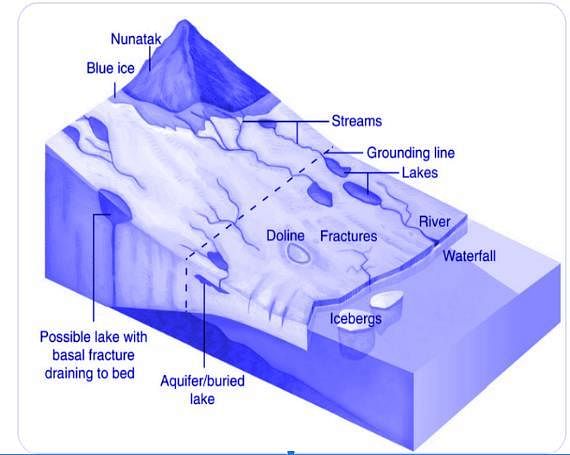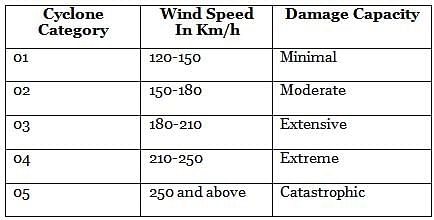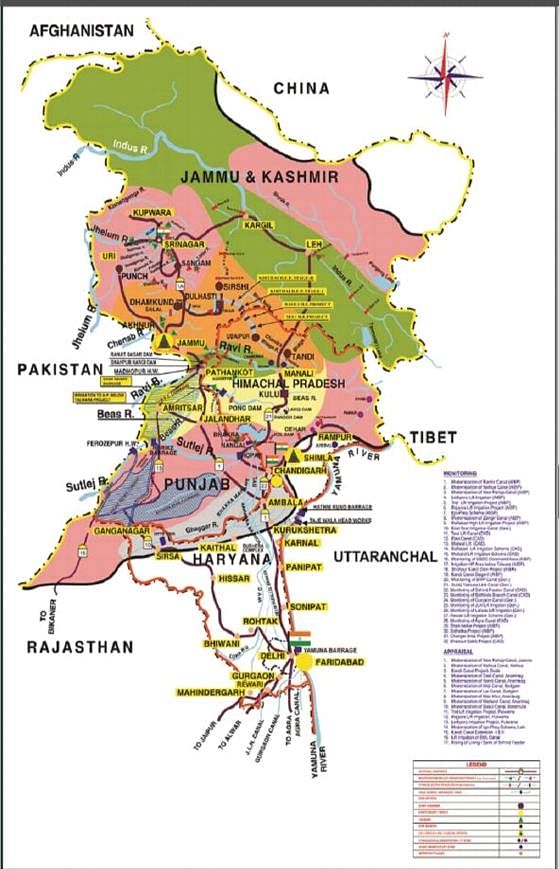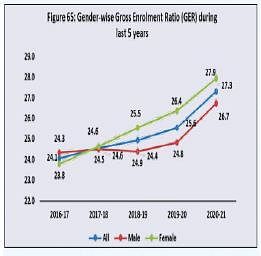Practice Test: Geography- 1 - UPSC MCQ
30 Questions MCQ Test Mock Test for UPSC Prelims 2025 - Practice Test: Geography- 1
Consider the following events with reference to the evolution of the Earth:
1. Initiation of photosynthesis.
2. Loss of the primordial atmosphere of the earth.
3. Degassing because of continuous volcanic eruptions.
4. Flooding of the atmosphere by oxygen.
5. Formation of the oceans
Which one of the following depicts the correct chronological order of the above events from past to present?
Consider the following statements about the Shield volcanoes:
1. These volcanoes are mostly made up of Basalt.
2. They always result in explosive eruptions.
3. Mount Fuji in Japan is an example of the Shield Volcano.
How many of the statements given above are correct?
| 1 Crore+ students have signed up on EduRev. Have you? Download the App |
Consider the following statements with reference to the lightweight payment system:
1. It will operate independently of existing payment systems like RTGS, NEFT, and UPI.
2. It will process transactions that are critical to ensure the stability of the economy.
Which of the statements given above are correct?
Consider the following statements with reference to the World Press Freedom Index 2023:
1. The index was compiled by Reporters Without Borders.
2. Norway ranked first, and China ranked last in this edition of the index.
3. It also reflects the effects of fake content on press freedom.
How many of the statements given above are correct?
Which of the following statements are correct with reference to the Deception Detection Tests (DDT)?
1. The drugs used in the Narco Analysis test guarantee that the subject will speak only the truth.
2. Heart rate and Blood Pressure are among the parameters used in the Polygraph test analysis.
3. Brain mapping is based on the finding that the brain generates a unique brainwave pattern when a person encounters a familiar stimulus.
Select the correct answer using the codes given below:
Consider the following countries:
1. United States
2. Canada
3. Germany
4. Japan
5. India
How many of the above are the members of the Group of Seven (G7) Countries?
Consider the following:
1. Trade
2. Supply Chains
3. Clean Energy, Decarbonization, and Infrastructure
4. Tax and Anti-Corruption
How many of the above are the pillars on which Indo Pacific Economic Framework for Prosperity (IPEF) aims to focus on?
The ‘Business Ready (B-READY) project’ is an initiative of which one of the following organisations?
Which of the following statements are incorrect with reference to the International Organisation for Migration?
1. It promotes humane and orderly migration by providing services and advice to governments and migrants.
2. It was established in 1915 at the time of World War I.
Select the correct answer using the codes given below:
Consider the following statements with reference to Insurance products in India:
1. Bima Sugam is an online portal for all insurance-related queries, policy purchase, claim settlement and insurance advice.
2. Each Gram Panchayat would have a ‘Bima Vahak’ tasked to sell and service simple parametric bundled insurance products.
3. Bima Vistar will be a social safety net to target the untapped Geographies in the country.
How many of the statements given above are correct?
Consider the following statements with reference to the Vivad se Vishwas II scheme:
1. It was launched by the Ministry of Corporate Affairs.
2. This scheme will apply to all domestic contractual disputes where one of the parties is either the Government of India or an organisation working under its control.
Which of the statements given above are correct?
Which one of the following is the major objective of ‘Operation Samudragupta’?
Consider the following rivers:
1. Nagwati
2. Rukmawati
3. Sabarmati
4. Tapti
How many of the above rivers drain into the Gulf of Khambhat?
Consider the following statements with reference to the Har Ghar Jal Programme:
1. It is implemented by the Jal Jeevan Mission under the Ministry of Jal Shakti.
2. The program aims to provide every rural household with affordable and regular access to an adequate supply of safe drinking water through taps.
Which of the statements given above are correct?
Consider the following pairs: Type of Earthquake Area of Occurrence
1. Tectonic : Near tectonic boundaries
2. Collapse : Areas near a reservoir
3. Explosion : Nuclear test sites
How many of the above pairs are correctly matched?
With reference to landscape evolution in deserts, consider the following statements:
1. Pediments are depositional landforms.
2. Inselbergs are remnants of mountains.
Which of the statements given above are correct?
Consider the following statements with reference to the Science and Engineering Research Board:
1. It is an executive body formed by a resolution of the government.
2. It tries to position science and technology as the fulcrum for social and economic change in the country.
Which of the statements given above are incorrect?
Consider the following regarding the surface of the Earth:
1. The unevenness of the Earth's surface is attributed to the movement of the Earth’s crust.
2. Exogenic forces contribute only to the degradation of relief features.
3. Human activities have had no impact on the Earth's surface.
Which of the statements given above are incorrect?
Consider the following statements with reference to the Data Security Council of India:
1. It is a statutory body on data protection in India.
2. This council runs certification programmes for cyber forensic professionals.
Which of the statements given above are correct?
Which of the following statements best describes the term ‘Nunataks’?
Consider the following statements with reference to the International Telecommunication Union (ITU):
1. It is the United Nations specialized agency for information and communication technologies.
2. The union allocates global radio spectrum and satellite orbits.
Which of the statements given above are correct?
Consider the following pairs:

How many of the pairs given above are correct?
Consider the following statements:
Statement-I: Mauritius and Reunion Islands of the Indian Ocean are the coral islands.
Statement-II: The coral islands are very much lower and emerge just above the water surface.
Which one of the following is correct in respect of the above statements?
With reference to a Cyclone, consider the following statements:
1. The Indian subcontinent is exposed to nearly 45 percent of the world’s tropical cyclones.
2. The air circulates inward in an anticlockwise direction in the Northern hemisphere and clockwise in the Southern hemisphere in a cyclone.
3. Cyclones are classified on the basis of the wind speed and their capacity to cause damage.
Which of the statements given above are correct?
Consider the following statements:
1. Nuclear and Radiological Emergency can arise while using radiation sources at Hospitals, Industries or Agriculture.
2. Infra-red rays are ionising rays and cause severe damage to human bodies.
Which of the statements given above are correct?
‘It drains the largest number of glaciers and mountain slopes of the Karakorum, Ladakh, Zaskar and Himalayan Ranges. Originating from the Kailash Mountain, it flows in a constricted valley north-westward through Tibet, where it is called Singi Khamban or Lion’s mouth.’
Which of the following rivers is best described in the passage given above?
Consider the following statements:
1. A marginal worker is a person who works for less than 183 days in a year.
2. The Labour Force Participation Rate of women in rural areas is higher than that of urban areas.
Which of the statements given above are correct?
Consider the following statements:
1. The Gross Enrolment Ratio for females in higher education has been consistently greater than that of males in the last 5 years.
2. The male-female gap in literacy rate in India has consistently reduced since Independence.
Which of the statements given above are correct?
Consider the following pairs:

How many of the above pairs are correctly matched?
Consider the following statements in the context of Central Highlands:
1. The general slope of the highlands is towards the south and south-east.
2. Musi river basin forms the majority part of the region.
Which of the statements given above are correct?
|
16 videos|4 docs|70 tests
|
|
16 videos|4 docs|70 tests
|





















